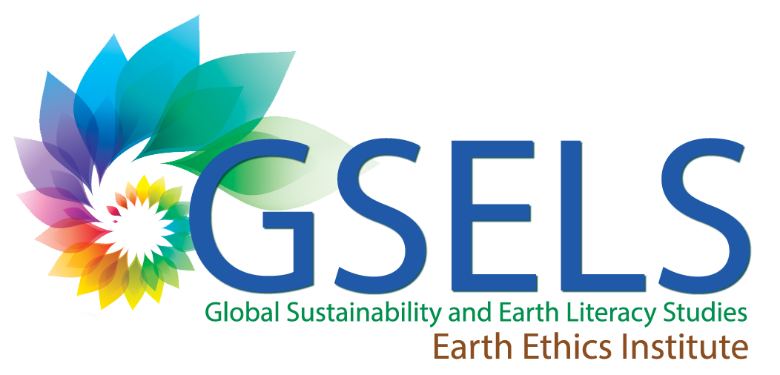Global Sustainability and Earth Literacy Studies (GSELS)

The Global Sustainability and Earth Literacy Studies (GSELS) learning network provides inclusive educational opportunities for the Miami Dade College community to explore global citizenship, ecological sustainability, and civic engagement, through understanding planetary challenges and limits and by developing values, skills, and behaviors that promote prosperity and communities of well-being.
Join GSELS!
MDC Learning Outcomes
The Global Sustainability and Earth Literacy Studies (GSELS) learning network is a curriculum enhancement supporting the following Miami Dade College (MDC) Learning Outcomes:
#3—Solve problems using critical and creative thinking and scientific reasoning
#5—Demonstrate knowledge of diverse cultures, including global and historical perspectives
#6—Create strategies that can be used to fulfill personal, civic, and social responsibilities
#7—Demonstrate knowledge of ethical thinking and its application to issues in society
#10—Describe how natural systems function and recognize the impact of humans on the environment
Guiding Philosophy and the Eight Characteristics of a 21st Century Engaged Global Citizen
GSELS draws on several important documents, including UNESCO’s the four pillars of life-long learning, The Earth Charter, and Thomas Berry’s “12 Principles of Understanding the Universe and the Role of the Human in the Universe Process.” GSELS is grounded in environmental sustainability and global education concepts, as well as ecological principles. GSELS course criteria foster the acquisition of the knowledge and skills needed to be 21st century engaged citizens, including these eight guiding principles of global citizenship (Sustainable Education, Sterling, S. 2001):
- Looking at problems in a global context
- Working cooperatively and responsibly
- Accepting cultural differences
- Thinking in a critical and systemic way
- Solving conflicts non-violently
- Changing lifestyles to protect the environment
- Defending human rights
- Participating in political process
There are Two Levels of GSELS Class Designation:
GSELS-Focused
These classes will address all course objectives through the lens of GSELS criteria. They will concentrate on key components of sustainability, including social, economic, and environmental dimensions, or examine an issue or topic using sustainability as a lens.
GSELS-Related
These classes will include at least one module addressing GSELS criteria. They might incorporate GSELS principles as a distinct course component or module, or they might concentrate on a single sustainability principle or issue.
GSELS Criteria for Inclusion
Faculty will include a minimum of three GSELS Criteria for Inclusion in each GSELS class section. These criteria serve as GSELS learning outcomes or objectives.
- Explain the principles and ethical implications of the Earth Charter.
- Describe the roles of personal and social responsibility in securing Earth’s resources and beauty for present and future generations.
- Defend the rights to dignity and health of all living beings and/or the ecosystems in which they are embedded.
- Explain how respect for Earth and biodiversity is essential for human and ecological health.
- Explain how cultural diversity, inclusion, compassion, nonviolence and peace are critical for global sustainability.
- Outline the history of Earth, the evolution of life, and humanity’s place in this timeline.
- Analyze situations and issues from a holistic systems thinking perspective.
- Explain how biomimicry can inform resilient, sustainable solutions.
- Consider how access to education, healthcare and economic prosperity are import for global sustainability.
- Illustrate how uncontaminated air, water, and soil are fundamental to healthy ecosystems.
- Analyze the interdependence of society, cultural diversity, the economy, and the environment.
- Describe how ethics influences poverty, the environment, and health in society.
- Compare the impact of different human actions and attitudes on global sustainability and ecosystems.
- Contrast business practices and economic models and their impact on global sustainability.
- Explain the precautionary principle and how it can prevent unintended consequences on human and ecological systems.
- Examine democratic principles that promote peace and global sustainability.
- Apply knowledge and skills to engage in behavior that fosters global sustainability.
- Participate in Service-Learning or other civic actions that model sustainability and resilience.
GSELS Campus Coordinators
Hialeah Campus
Christina Sudduth
GSELS Faculty Liaison / iCED Director of Hialeah Campus
csudduth@mdc.edu
Homestead Campus
Nia Madison
GSELS Faculty Liaison
mmadison@mdc.edu
Kendall Campus
Melissa Lau
EEI Program Professional
mlau1@mdc.edu
Medical Campus
Mike Matthews
EEI Collegewide Director
mmatthew@mdc.edu
North Campus
Mike Matthews
EEI Collegewide Director
mmatthew@mdc.edu
Padrón Campus
Yadira Capaz
EEI Program Professional
ycapaz@mdc.edu
West Campus
Sarah Jacob
GSELS Faculty Liaison
sjacob@mdc.edu
Wolfson Campus
Logan Saucer
GSELS Faculty Liaison
lsaucer@mdc.edu